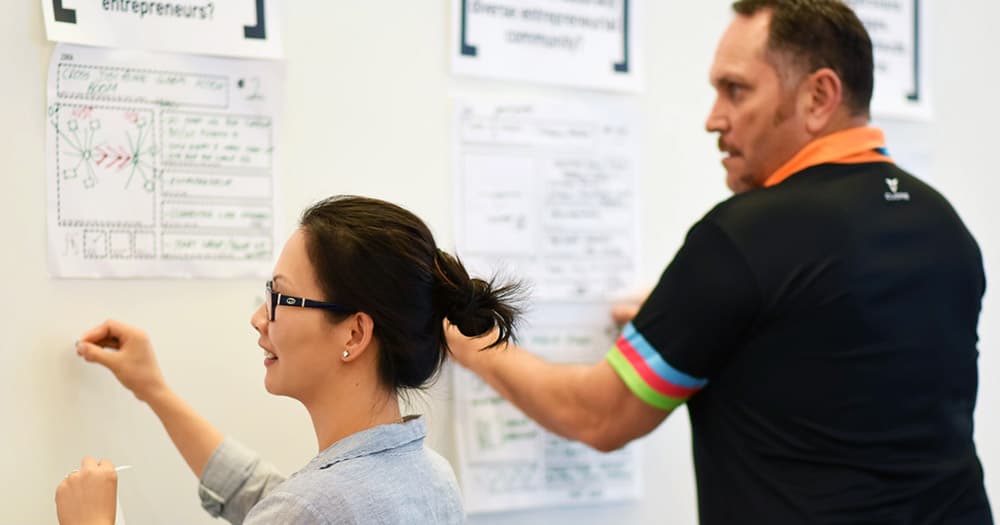STEM Skills Take You Further

STEM skills pair well with other interests to expand your career options.
The Australian Bureau of Statistics reports that jobs requiring STEM skills (science, technology, engineering and maths) grew at about 1.5 times the rate of other roles in recent years. Yet only 18% of the Australian workforce has STEM qualifications. Source: ABS (2010–11)
Design, engineering, science, transport and ICT professionals are among the fastest growing occupational groups. This has created a need for skilled workers in areas you might not expect.
The Australian Industry Group is a dedicated national advocate for the advancement of STEM skills and knowledge, which are fundamentally important for the growth of the Australian economy.
- The Australian Industry Group’s Survey of Workforce Development Needs indicates that almost 44% of employers continue to experience difficulties recruiting STEM-qualified technicians and trade workers.
- Around 20% have difficulties finding appropriately trained professionals and managers.
STEM expertise can transform our society and economy.
Innes Willox
Despite this need, Australia’s international performance in STEM lags behind many comparable countries, which are improving their provision, participation, and performance more rapidly.
In the tertiary education sector, participation in STEM-related disciplines is in decline in absolute terms, in contrast with comparable nations. We need many more STEM graduates and postgraduates.
If you’re considering a postgraduate degree, STEM pathways can open up rewarding job options beyond academia. In practice, this often means combining technical capability with a second strength, such as leadership, policy, education, design, health, or commercial decision-making.
A quick way to sanity-check a STEM-focused postgraduate choice is to ask three questions. What technical work will you be able to do that you cannot do now. Which industry or domain will you apply it to. What role becomes realistic after 12 to 24 months of study and experience.

To find out more about building a fantastic career through cross-disciplinary skills, read about pairing science and engineering with business and leadership in Cross-disciplinary Edge, learn about being agile and forging industry links in Staying Agile, and discover how to increase Your Earning Potential in the process!
What Are the Most Important STEM Skills?

While other skills such as creativity, teamwork, digital literacy, independent thinking, and initiative are also important, problem solving, communication, and critical analysis are considered to be the most essential skills for success in a STEM career. Here is a list of the top 8 most important skills to have.
- Problem solving. Problem solving is at the core of STEM fields, as professionals are constantly faced with new and complex challenges that require creative solutions.
- Communication. Effective communication is essential to convey complex ideas, collaborate with others, and make their work accessible to non-experts.
- Critical analysis. The ability to analyse and evaluate information is needed to make sound decisions, identify flaws in arguments, and think critically about complex problems.
- Creativity. Creativity is key to generating innovative solutions and approaches to complex problems, which is particularly important in fields where there are often no established solutions.
- Teamwork. Collaboration enables professionals to combine their diverse skills, knowledge, and perspectives to solve complex problems and make breakthrough discoveries.
- Digital literacy. Digital literacy is increasingly important in the digital age, enabling one to effectively use and leverage technology to solve problems, gather and analyse data, and communicate findings.
- Independent thinking. You must be able to think independently, challenge assumptions, and question established paradigms in order to generate new ideas and approaches.
- Initiative. Taking initiative is important as it helps professionals to identify and address problems proactively, innovate, and take risks in pursuit of breakthroughs.
Problem-solving skill is not only essential in STEM, but a STEM education teaches that skill. As Vince Bertram explains, “Once they grasp core concepts, students are able to choose a problem and use their own creativity and curiosity to research, design, test and improve a viable solution.”
